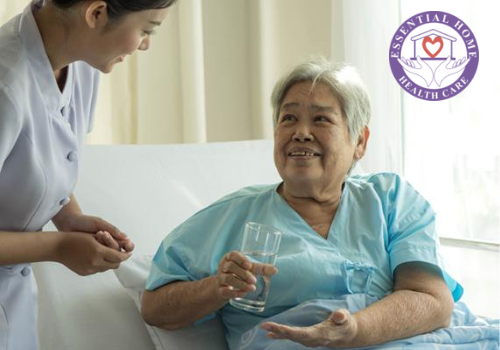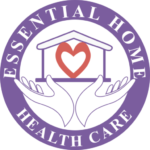Medication management can be one of the most difficult tasks for aging adults and their caregivers. It is a complicated process, and medications and dosages frequently change. Older adults must take only the medications prescribed, exactly as prescribed, and have confirmation from their doctor and pharmacist that there will be no potentially dangerous drug interactions or complications. Senior living communities have resources to assist residents in managing their medication needs. What are the 8 Tips for effective medication management in the community for seniors?

Medication management is especially important for patients suffering from multiple diseases and illnesses. Polypharmacy refers to multiple medications, which is especially common in older adults due to multiple medical issues. Follow the tips below to avoid potential medication complications.
- Make a habit of setting reminders
Forgetting to take prescribed medication can impact how your body functions and make you more susceptible to illness. Set the alarm, or have a friend or family member remind you. Make a note for yourself, create a calendar and reminder system, or get into the habit of taking your medicine at the same time every day to help you remember. But you can contact Essential Home Health for medication management at home. They’re available for you 24/7.
- Sort pills into daily reminder boxes or dispensers ahead of time
There are containers organized by day of the week for those who take multiple medications. With the days of the week labeled, you can put the pills you need each day in the container so they are all together and you don’t forget to take one. If you do forget, you will be aware of it immediately.
- Make frequent doctor’s appointments
Health-care requirements are constantly changing. Your symptoms may have changed, and you no longer require specific medication. Alternatively, the prescribed medication may not be effective, so you must find an alternative solution. As you get older, it becomes more important to see your doctor and health care team on a regular basis to address any issues and keep your medication list up to date.
- Confirm that you understand which medications should be taken together.
It is critical to ensure that your doctor prescribes medications that can be taken concurrently. Multiple medication dosages are sometimes too strong or have too many side effects to be taken simultaneously.
- Determine whether certain medications require you to consume foods or liquids.
Medication is typically taken on an empty stomach; however, this is not always the case. When taking multiple medications, you should know what you should eat or drink before or after each one. Make sure you understand whether it is safe to take multiple medications simultaneously or if they should be spread out throughout the day.
- Arrange for pills to be picked up or delivered to you from the pharmacy.
It is difficult enough to remember to take medication, but it is even more important to ensure that prescriptions are filled on time. You don’t want to forget to fill a prescription and miss a few days of medication. Make a reminder on your calendar to order your prescriptions.
If you have difficulty getting around, plan ahead of time to go to the drugstore or have prescriptions mailed directly to you. This is an excellent option because it only takes a phone call to deliver your medication to your door.
- Keep an eye out for side effects
This is especially important if you start a new medication or change your medication regimen. Pay close attention to any symptoms of dizziness, insomnia, weakness, upset stomach, or pain. Contact your doctor as soon as you feel ill, and tell them what medications you are taking and what you believe is the problem.
- Dispose of old medications
Medications have shelf lives. Keep an eye out for these because taking expired medications can have serious side effects. Dispose of these drugs and consult your doctor about getting a refill prescription if they are still required.
We understand the significance of medication management at Essential Home Health living communities. We have a variety of resources to assist our residents, including medication management services provided by our nursing staff, assistance with medication refills, transportation to pick up prescriptions and doctor appointments, and physician relationships to ensure a successful medication regimen.
Medication Management at Home
Older persons (65 or older) are three times more likely to go to the ER for adverse medication events and seven times more likely to be hospitalized.
Drugs. Dosages. Daytime. Seniors can struggle with medication management. Effective medication management begins with people and tools.
Who Should Manage a Family Member’s Medications
Who comes to mind as organized, competent, and trustworthy? Medication managers should have these attributes. Daughter, spouse, or neighbor come to mind. Think nurse.
Consider a qualified home health organization (Essential Home Health) for medication management. A skilled home health company will hire only licensed nurses. If your normal nurse isn’t available, they have backups.
Reminder and Delivery Tools
- Many products help ensure precise and timely medicine distribution. Delivery tools range from basic pill boxes to high-tech gadgets.
- Many of us need help planning and remembering to take supplements, vitamins, and prescription medications. Walgreen’s EZY Dose One-Day-at-A-Time makes it easy. We like the easy-open tabs, 2x and 4x per day options, and spacious bins. This pill box costs under $10.
- Apps can help. Most folks have cell phones and keep them close. Here are the top 5 medication apps to assist you or a loved one take medication correctly.
- A Medicine Center Talking Alarm Clock can help with pill boxes. When it’s time to take medications, a prerecorded message plays (“Dad, take your tablets.”)
- The Center Reminder System combines a spoken alarm clock with a pill planner.
- Some talking alarm systems have a pill box that opens from the top. Even when drugs are divided and labeled for day and time, it’s easy to take the wrong pills, forget what day it is, or spill the entire container. Daily closures are preferable.
- The Center Talking Alarm Clock and Reminder System help competent but forgetful people. If you’re caring for a non-competent person, you can still utilize these systems, but we recommend having someone check them for indicators it’s time to upgrade. Ideas:
- Livi is a pill dispenser that can carry 90 days of medication and administer 15 tablets at once. Caregivers receive text alerts when medication is provided, or a dose is missed.
- A caregiver loads medication and gives the dispensing schedule. Medication reminders are sounded. A button dispenses medications. The dispenser can call you or a family member if a dose is missed. You can then check on your loved one’s medication.
- Medication management is vital to overall treatment. Drugs & Aging (2005) states that 200,000 Americans die annually from medication-related disorders. Seniors and caregivers have numerous alternatives for managing a safe drug plan. Not another statistic.
Essential Home Health is expert in medication management in home health care. A reliable community for seniors. Do you want to learn more about medication? Read another post about what is medication management. For more information, call them at 847-813-6301.
